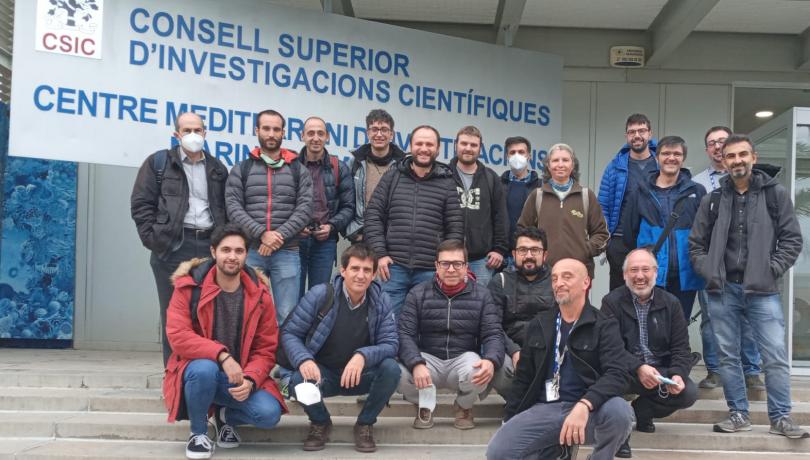Over the next four years, the research team will evaluate the usefulness of a network of newly created marine protected reserves in waters between 300 and 400 meters deep.

The Institut de Ciències del Mar (ICM) of Barcelona will measure the capacity of marine reserves to recover overfished species and their ecosystems thanks to BITER, a project funded by the State Research Agency in which the Universitat Politècnica de Catalunya · BarcelonaTech (UPC) and the Universitat de Girona (UdG) also participate.
Specifically, BITER (A joint effort between BIology and TEchnology to monitor and recover fishery-impacted species and ecosystems: augmented multiparametric landers), which starts now and will last for the next four years, will evaluate the usefulness of a new network of protected marine reserves located in deep waters (between 300 and 400 meters deep) of the Catalan coast to recover populations of species of fishery interest, endangered species and habitats where they are present.
"With this project we want to find out if the establishment of a network of marine reserves in deep waters could serve to recover damaged habitats and benthic ecosystems and, at the same time, favour a sustainable exploitation of species of fishing interest in the Mediterranean," explains the ICM researcher Joan Navarro.
On the other hand, the initiative aims to test the effectiveness of non-invasive monitoring of species through the use of underwater robots that allow assessing the state of marine communities and habitats without altering natural processes.
A multidisciplinary effort
ICM scientists, experts in marine biology and ecology, will work in close collaboration with technologists from the UPC and the UdG, specialists in the development of marine technology and the implementation of underwater robotics.
The leadership of the ICM in this project is due to the proven experience of the research group "Functioning and Vulnerability of Marine Ecosystems" in the study of marine communities and resources that inhabit the exploited ecosystems. It is precisely this group that has advised the Spanish Government in the creation of the new network of marine reserves of fishing interest whose effectiveness will now be evaluated thanks to the BITER project.
"We are beginning the Decade of Ocean Sciences declared by UNESCO, one of the objectives of which is to restore marine ecosystems and, without doubt, this network, formed by 19 reserves, is going to be a global reference," celebrates Joan B. Company, also a researcher at the ICM.
For its part, the UPC group participating in the project, the Center for the Development of Remote Acquisition and Information Processing Systems (SARTI-UPC), is one of the few in Spain with top-level experience in the design, development and implementation of marine technologies, including underwater acoustic systems. Among others, they manage the OBSEA marine observatory, the only cabled underwater platform in the Spanish Mediterranean.
"The design of new seabed observation platforms that are lightweight and allow deployment and retrieval from vessels is one of the challenges of the project. Thanks to the OBSEA underwater station, these platforms will be tested in a controlled environment before deployment in marine protected areas, located at greater depth," expose Joaquín del Río (SARTI-UPC researcher) and Jacopo Aguzzi (ICM).
Finally, the UdG participates in the project through the ViCOROB-UdG group, which has extensive experience in national and international research projects related to autonomous underwater vehicles (AUVs), including the development of the AUV Girona 500/1000 and Sparus II, used by different research groups internationally.
"In this project we are going to develop AUVs that will actively search for individuals of protected species and map the areas they inhabit to have a more detailed knowledge of these. The AUVs allow us to monitor the seabed in a flexible and simple way, and will be a key instrument for the management of marine ecosystems," highlights Marc Carreras, a VICOROB-UdG researcher.
According to the project participants, "this multidisciplinary approach will ensure the development of state-of-the-art methodologies that will enable better and more sustainable fisheries management, as well as the recovery of marine habitats damaged by human activity and the establishment of protocols for monitoring marine reserve networks located at great depth".